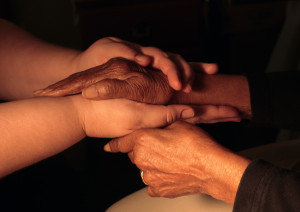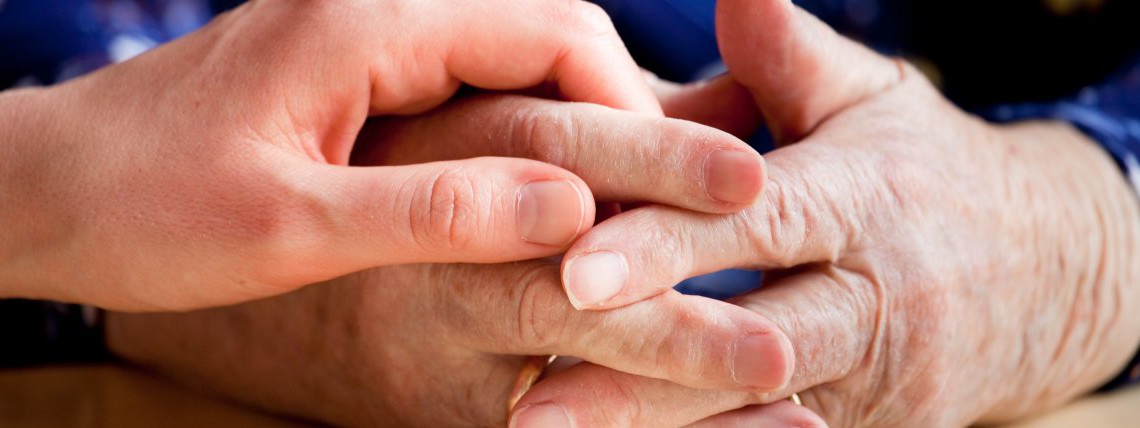On behalf of the staff here at Friends for Friends, welcome to our new and improved website! We hope that you take the time on this site to get to know our registry and what makes us unique. We maintain a small client-base so that we can provide thorough and efficient oversight of caregivers. It is always an ongoing process to ensure that caregivers are working cohesively with family members and staff working within the communities in which our clients reside. Quality in-home care can take on many forms depending on our clients’ situations. We can be called in to assist short-term as a client is transitioning out of a hospital or skilled nursing facility and back into their chosen home. We can also be a consistent presence and provide opportunities for our clients to thrive through mental and social stimulation. Part of my job is to highlight the dedicated people who work to enrich our clients lives every day. It is no secret that there are many options in the in-home care industry. All we can do to stand apart is to tell you about our values and take pride in our work. So thank you for visiting the page, and stay tuned for more updates to this blog. Reach out to me via jacqueline@homecareinct.com with any questions or comments.
Work With Your Doctor: Advocate For Yourself!
 Earlier this month, I had the pleasure of speaking to a group of wonderful community members at the Colchester Senior Center. We engaged in a discussion about the importance of advocating for yourself at the doctor’s office. While the doctor is traditionally a person with a great deal of authority, remember that it is your job to be managers of your own health and well-being. This includes communicating changes to all members of your health care team such as cardiology and urology specialists. Bringing a trusted advocate (a friend, family member, or geriatric care manager) can also be a good plan depending on your circumstances. Be prepared. Come with a list of your current medications, including the doses and schedule. Prepare an agenda and highlight your top questions or concerns. Share new trends and tempo of your symptoms if you have recently started a new medication. Take notes throughout your appointment. Consider utilizing a health journal in which you can record health changes as they occur, and log instructions given during your appointment. Foster the doctor-patient relationship by giving feedback. Studies show that doctor visits can be only about 15 minutes. We all know that the doctor’s time is valuable. But so is yours! How would you like your valuable time spent? Don’t be afraid to take action and speak your mind. These are just a few of the points we addressed in our discussion. At Friends for Friends, we know that regardless of age or medical conditions, we can all learn a tremendous amount from each other’s experiences. I know I did!
Earlier this month, I had the pleasure of speaking to a group of wonderful community members at the Colchester Senior Center. We engaged in a discussion about the importance of advocating for yourself at the doctor’s office. While the doctor is traditionally a person with a great deal of authority, remember that it is your job to be managers of your own health and well-being. This includes communicating changes to all members of your health care team such as cardiology and urology specialists. Bringing a trusted advocate (a friend, family member, or geriatric care manager) can also be a good plan depending on your circumstances. Be prepared. Come with a list of your current medications, including the doses and schedule. Prepare an agenda and highlight your top questions or concerns. Share new trends and tempo of your symptoms if you have recently started a new medication. Take notes throughout your appointment. Consider utilizing a health journal in which you can record health changes as they occur, and log instructions given during your appointment. Foster the doctor-patient relationship by giving feedback. Studies show that doctor visits can be only about 15 minutes. We all know that the doctor’s time is valuable. But so is yours! How would you like your valuable time spent? Don’t be afraid to take action and speak your mind. These are just a few of the points we addressed in our discussion. At Friends for Friends, we know that regardless of age or medical conditions, we can all learn a tremendous amount from each other’s experiences. I know I did!
Innovative Eagle Scout Protecting Alzheimer’s Patients
Too often I have found that youth fail to recognize and appreciate their elders in our society. When I stumbled upon this article, I was touched by the concern and proactivity of 15-year-old Kenneth Shinozuka. His grandfather is living with Alzheimer’s disease. After family caregivers suffered through several scares in which his grandfather wandered away, Kenneth took action. He created a real-time, low-cost alert system in the form of a very small sensor placed on the foot of an Alzheimer’s patient. Data gathered following the use of this device with his own grandfather, which alerts his caregiver via their personal smartphone, has drawn a great deal of attention and funding. Even at a young age, Kenneth recognizes that while there is still no cure for this difficult disease, there is a significant need to increase patient safety and dignity. For more information, please visit the Scouting Magazine article. You will find more detail on his invention, including a video (below) and a full outline of his work at the Google Science Fair Page. Kudos to Kenneth!
Hydrate, Hydrate, Hydrate
 We are in the thick of the summertime, which is the perfect reason to remind you as caregivers to make sure that your clients and loved ones are staying hydrated. Many older adults experience a shift in their sense of thirst. Others take medications that can impact sweating. Many also have mobility issues that impact their ability to get to a drink or food. Remember that water is not the only source of hydration. Consuming water-based foods can help with hydration-examples include vegetables, soup, and fruits like watermelon. Remind older adults to drink even when they don’t feel thirsty and provide a bottle next to their chair so it is easy to encourage them to sip between meals. It is crucial that you identify signs of dehydration to prevent progressing illness and hospitalization. Take note of headaches, dizziness, confusion, and changes in weight and blood pressure. Dark and infrequent urine are also potential warning signs. Friends for Friends implores you to take the necessary steps to prevent the harmful effects of dehydration! Enjoy the rest of your summer.
We are in the thick of the summertime, which is the perfect reason to remind you as caregivers to make sure that your clients and loved ones are staying hydrated. Many older adults experience a shift in their sense of thirst. Others take medications that can impact sweating. Many also have mobility issues that impact their ability to get to a drink or food. Remember that water is not the only source of hydration. Consuming water-based foods can help with hydration-examples include vegetables, soup, and fruits like watermelon. Remind older adults to drink even when they don’t feel thirsty and provide a bottle next to their chair so it is easy to encourage them to sip between meals. It is crucial that you identify signs of dehydration to prevent progressing illness and hospitalization. Take note of headaches, dizziness, confusion, and changes in weight and blood pressure. Dark and infrequent urine are also potential warning signs. Friends for Friends implores you to take the necessary steps to prevent the harmful effects of dehydration! Enjoy the rest of your summer.
Benefits of Massage
 As family and professional caregivers, it is essential to learn about interventions that can help reduce difficult behaviors like agitation in people living with dementia. Nursing literature has documented studies around the use of interventions such as hand massage and slow-stroke back massage. Massage can help with caregiver stress and with long-term medication side effects dementia patients have to endure. Statistical conclusions have revealed that hand massages aided in reducing nonaggressive behaviors and verbal aggression. The hand massages utilized lasted only 3 to 10 minutes. Slow-stroke back massage has been shown to decrease physical expressions of agitation like wandering and pacing. Playing the individual’s favorite music can also be effective when used while giving a quick massage. Other factors to consider when massaging are the room temperature and overall setting (private home or nursing facility). Also, it is important to consider the sensitivity of the individual’s skin. Utilizing a small amount of hand lotion could also be beneficial. Of course, ensure that you are aware of any allergies to lotions and fragrances the individual might have. At Friends for Friends, we work hard to be a valuable resource for caregivers as they dedicate their lives to serving those with many difficult conditions such as dementia. Short massages are simple tools that can make a big difference.
As family and professional caregivers, it is essential to learn about interventions that can help reduce difficult behaviors like agitation in people living with dementia. Nursing literature has documented studies around the use of interventions such as hand massage and slow-stroke back massage. Massage can help with caregiver stress and with long-term medication side effects dementia patients have to endure. Statistical conclusions have revealed that hand massages aided in reducing nonaggressive behaviors and verbal aggression. The hand massages utilized lasted only 3 to 10 minutes. Slow-stroke back massage has been shown to decrease physical expressions of agitation like wandering and pacing. Playing the individual’s favorite music can also be effective when used while giving a quick massage. Other factors to consider when massaging are the room temperature and overall setting (private home or nursing facility). Also, it is important to consider the sensitivity of the individual’s skin. Utilizing a small amount of hand lotion could also be beneficial. Of course, ensure that you are aware of any allergies to lotions and fragrances the individual might have. At Friends for Friends, we work hard to be a valuable resource for caregivers as they dedicate their lives to serving those with many difficult conditions such as dementia. Short massages are simple tools that can make a big difference.
Activities for Alzheimer’s Patients
 Remaining active is vital for those coping with Alzheimer’s disease and related dementia. Most have enjoyed a lifetime of hobbies and activities that they certainly can continue, but with some modifications to keep them happy and healthy. One valuable resource for family and professional caregivers is the Alzheimer’s Association. They offer a 24-hour helpline which can be reached at (800) 272-3900. The Connecticut Chapter of the Alzheimer’s Association has a main office located in Rocky Hill, CT and can be reached at (860) 571-8613. As certified nursing assistants (CNA) and home health aides (HHA), it is so important to utilize valuable resources as you help your clients navigate their lives with dementia. Look at the list created by the Midlands Chapter of the Alzheimer’s Association titled “101 Activities You Can do with an Individual with Alzheimer’s disease.” Of course, some activities on the list may not be the best fit for your clients, but others may prove to be helpful and uplifting, especially if clients have become agitated. For example, for a client who has spent her life as a proud homemaker, activities such as #44 folding towels, #25 washing and sorting silverware, and #86 wiping down furniture could be very stimulating. Soothing (#79 Rub in Hand Lotion) and creative (#51 Make a Family Tree Poster) activities are also suggested in this comprehensive list. To view and print this list, visit: http://www.alz.org/midlands/documents/101_activities_you_can_do_with_an_individual_with_alzheimer-11.pdf. At Friends for Friends, we encourage you to consistently expand your knowledge and generate new ideas to better serve your clients and family members.
Remaining active is vital for those coping with Alzheimer’s disease and related dementia. Most have enjoyed a lifetime of hobbies and activities that they certainly can continue, but with some modifications to keep them happy and healthy. One valuable resource for family and professional caregivers is the Alzheimer’s Association. They offer a 24-hour helpline which can be reached at (800) 272-3900. The Connecticut Chapter of the Alzheimer’s Association has a main office located in Rocky Hill, CT and can be reached at (860) 571-8613. As certified nursing assistants (CNA) and home health aides (HHA), it is so important to utilize valuable resources as you help your clients navigate their lives with dementia. Look at the list created by the Midlands Chapter of the Alzheimer’s Association titled “101 Activities You Can do with an Individual with Alzheimer’s disease.” Of course, some activities on the list may not be the best fit for your clients, but others may prove to be helpful and uplifting, especially if clients have become agitated. For example, for a client who has spent her life as a proud homemaker, activities such as #44 folding towels, #25 washing and sorting silverware, and #86 wiping down furniture could be very stimulating. Soothing (#79 Rub in Hand Lotion) and creative (#51 Make a Family Tree Poster) activities are also suggested in this comprehensive list. To view and print this list, visit: http://www.alz.org/midlands/documents/101_activities_you_can_do_with_an_individual_with_alzheimer-11.pdf. At Friends for Friends, we encourage you to consistently expand your knowledge and generate new ideas to better serve your clients and family members.






